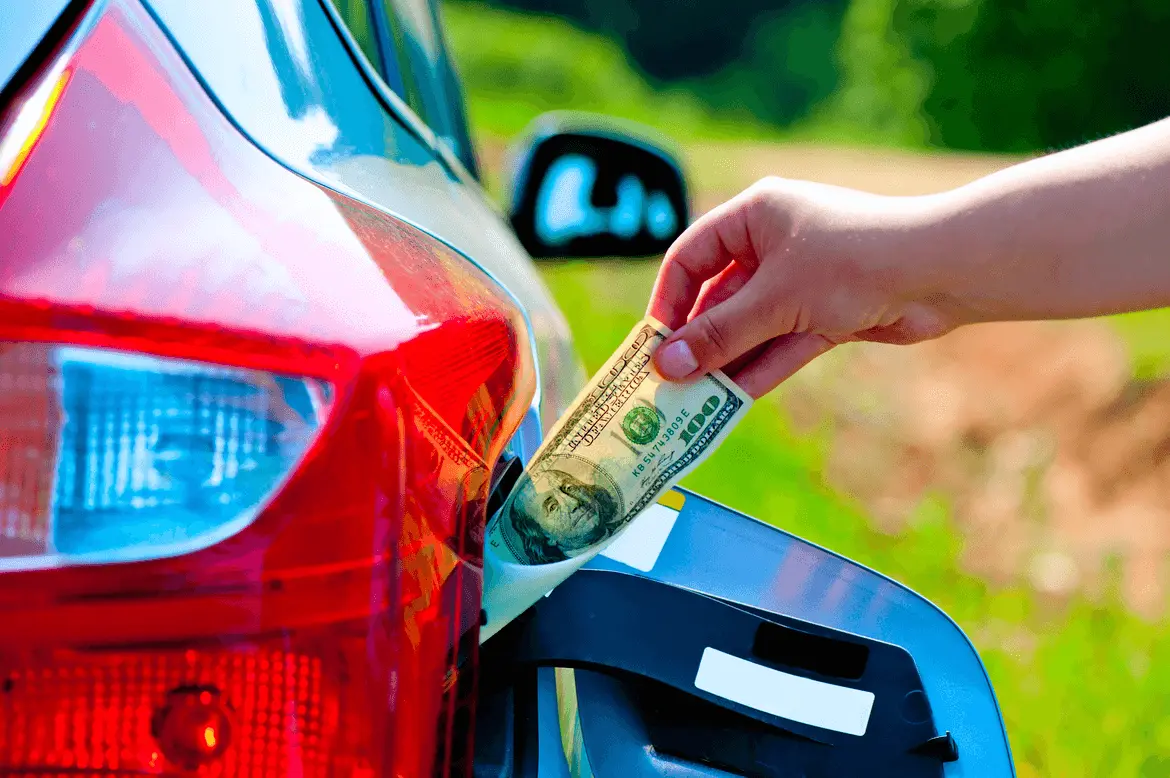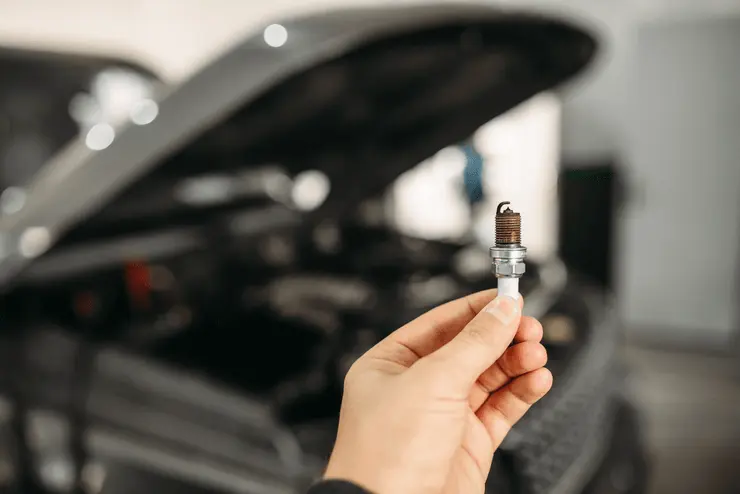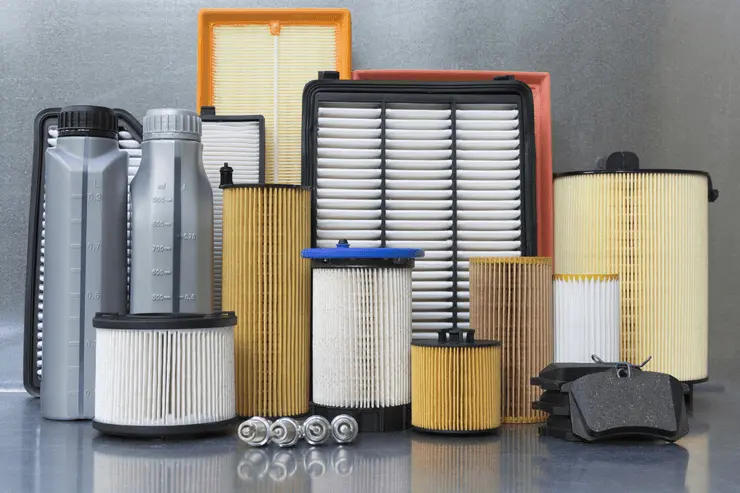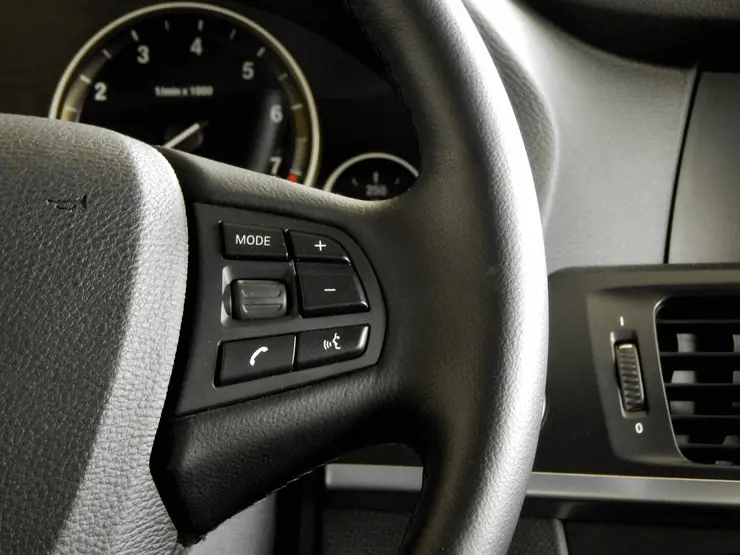How to Reduce Fuel Consumption in the Summer

The Internet is teeming with recommendations about how to reduce car fuel consumption in the summer. Among the fairly good tips, there are harmful ones for the vehicle itself that come across from time to time. Automotive experts often exaggerate savings. Sometimes it may seem that the advice is economically meaningless—to save money, you need to spend more than you get to keep. With AutoBidMaster, everything is possible. That’s why we prepared some top tips on how to reduce fuel consumption in the summer.
Keep the Spark Plugs Clean to Reduce Fuel Consumption

There is a popular opinion that the main cause for the increase in fuel costs is the technical condition of the car. One of the reasons for excessive gasoline consumption is spark plugs that are contaminated or worn out. They perform the function of ignition of the fuel mixture, but with an exhausted electrode or increased carbon soot on it, the mixture will ignite intermittently. The overrun of fuel will be about 15-20%, but it can double. Therefore, you need to change spark plugs more often than recommended by the manufacturer to cut expenses.
Remember that it’s better to replace them not just in case but depending on their condition. So, the problem of fuel overspending may appear after 1,200 miles if you refuel with low-quality gasoline and may not appear at all after 25,000 miles. Moreover, when a driver uses only purified petrol, spark plugs may last up to 60,000 miles, so there’s no need to replace them.
Check Filters

Foremost, you need to make sure that the filters are clean, especially the air and fuel ones. The first of them wears out much faster, so you need to change consumables more often. If the air filter is clogged, the engine may lose power. Traction deteriorates in this case because the power plant doesn’t have enough oxygen. Auto mechanics and manufacturers recommend replacing the air filter approximately once every 12,000–18,000 miles.
Concerning fuel filters, which can be replaced along with air ones, they are responsible for sieving gasoline or diesel entering the engine. Petrol consumption, just like the fuel system condition, directly depends on how well the liquid is cleaned. Keep in mind that the filter mesh can clog very quickly if you fill it with low-quality fuel. In this case, you need to drain it and replace the element.
Adhesion to the Surface also Matters

To save fuel, you need to reduce the friction force of rolling wheels and air resistance. To solve the first problem, it is necessary to pump up your tires more. This will make the car “tough” on the road and significantly reduce gasoline consumption.
A thrifty driver should check the tire pressure once a month. With the low parameter, the wheel can explode. Slightly under-inflated tires wear out quickly. Moreover, fuel consumption rises in this case, and the car chassis load also increases. You can also find so-called special economy tires, which allow you to save gasoline due to the optimal tread pattern.
Take into Account the Additional Load

The amount of gasoline consumed is also affected by the operation of the auxiliary devices in your car. All these systems are driven by a special motor – albeit not an internal combustion engine. In any case, the retrofitted vehicle increases engine speed and therefore leads to excessive fuel consumption. Due to the additional load on the motor from the side of the electric generator, the loud audio system of your car and the air conditioner, for example, are powered. Thus, the operation of such devices as heating windshields or seats, rear-view mirrors, and conditioning adds to fuel consumption of about 1.17–1.88 MPG.
The main source of fuel overspending is a turned-on heater. Car drivers notice that if there are too many active car appliances at the same time, the consumption will increase by 15–20%. Remember that heated windshields and mirrors influence safety, so it’s better not to save on this.
Analyze Your Driving Style to Reduce Fuel Consumption

How you drive also gives you significant savings. You need to move in such a way as to make fewer stops—for example, avoid traffic jams or lights. Thus, at the same time, the kinetic energy of the car is irretrievably lost, on the accumulation of which a particular volume of fuel was previously spent. You can also reduce gasoline consumption due to smooth acceleration and braking. The principle is that the less you use the brake, the lower the expenditure.
Many drivers also know that if you often coast, you can save a significant volume of fuel. However, it’s true if we only speak about outdated carburetor vehicles. With modern ones, an attempt to save money in this way can lead to a car accident. In summer, when the temperature is high, it’s possible to get the brakes to overheat when moving in neutral.
On a car with an injector, movement in neutral doesn’t save fuel. Moreover, when descending by coasting from a slide in gear, fuel consumption is 1.15 MPG, and in neutral gear, it is 11.76 MPG. The reason is that in modern cars, the forced idling mode with the fuel supply completely turned off is activated when the gear is engaged while driving.
The Bottom Line
We reviewed some key thoughts and concerns about how to reduce fuel consumption in the summer. The main points here are checking spark plugs and filters, bearing in mind the additional load on the engine, and analyzing your driving style. Use only high-quality fuel to extend the service life of many important car systems.
AutoBidMaster specialists are happy to supply you with useful information concerning the automotive world. Our mission is to help other car lovers. To join us, we invite you to sign up on our auction platform, upload a copy of your government-issued ID or passport, place a security deposit, and start bidding. Don’t hesitate to contact us online anytime or call us at: +1 (503) 298-4300 (4:00 AM–4:00 PM PST, weekdays).
Why the Car Auction Schedule Matters
The car auction schedule is a critical tool for anyone serious about buying salvage cars. It provides a clear timeline of when and where auctions take place, allowing buyers to plan their participation and maximize opportunities.
- AutoBidMaster Automotive News: April 2024 Digest - April 25, 2024
- Electric Car Charging at Home and On-the-Go - April 18, 2024
- Why Choose Used Can-Am Quads - April 11, 2024